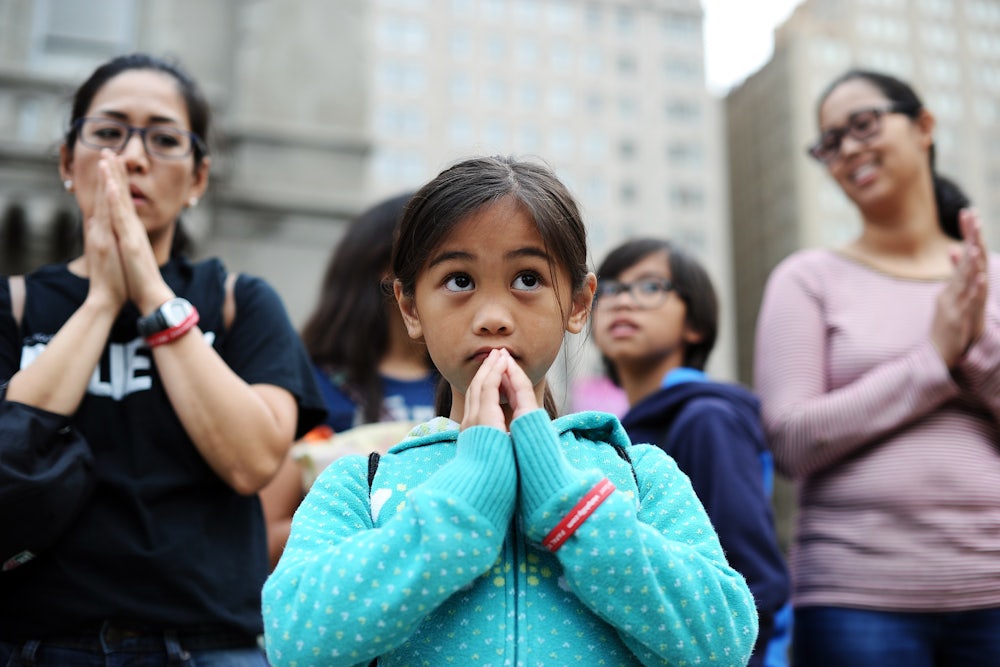According to a new Public Religion Research Institute (PRRI) survey, millennials are still leaving organized religion in droves. 39 percent of millennials now describe themselves as religiously-unaffiliated. That’s the highest number of religiously-unaffiliated American young adults ever.
And that trend probably isn’t going to change. PRRI’s research shows that once people leave, they aren’t coming back:
In the 1970s, only about one-third (34%) of Americans who were raised in religiously unaffiliated households were still unaffiliated as adults. By the 1990s, slightly more than half (53%) of Americans who were unaffiliated in childhood retained their religious identity in adulthood. Today, about two-thirds (66%) of Americans who report being raised outside a formal religious tradition remain unaffiliated as adults.
Catholicism bears the brunt of the exodus (so much for the so-called “Francis effect”). White mainline and evangelical Protestantism ranks second and third. And conversions aren’t making up the difference: If unaffiliated retention rates hold steady, it won’t be too long before Christianity’s reign as the country’s majority religion is over.
That’s significant news in a country plagued by vicious debates over its religious character. America has never been “a Christian nation” the way its fundamentalist citizens define the concept, but it has certainly been one in an unofficial sense. And since religion, specifically Christianity, has become deeply politicized due to the diligent efforts of the religious right, these deep fluctuations in religious identity have political implications too.
We are entering uncharted waters. Here be dragons, especially for conservative people of faith. They seem to have two options: Accommodate millennial social norms, or a la Rod Dreher, resign themselves to cultural exile. But neither route may be enough to prevent a religious realignment.
